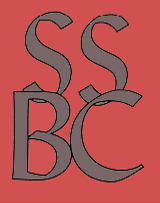
Seattle Small Books Company
jim_brantingham@msn.comBook Stores
You can purchase books at these bookstores.
Open
Books
A Poem Emporium
Vashon Bookstore
City Lights Booksellers & Publishers
Click here for additional contact information for these book stores.
Seattle Small Books Company
On Ancient Paths
DEAR READER:
Introductory Comments for HTML version of “On Ancient Paths”
The three poems tell a story about the history and the creation of literature—in parody. In spite of the obvious humor, there is an underlying theme which is outlined below:
1—In Schliemann’s Library. This first poem playfully reflects the condition of post-modern literature. The opening lines describe the shelves in a bibliophile’s library which leads to a comparison of the condition of ancient architecture. The poem goes on to portray several of the characters who wrote in the 1920s in Europe—Joyce, Eliot, Pound and the caryatid/muse to many writers, Sylvia Beach, owner of the Paris bookstore, Shakespeare & Co.
2.—In The Tower. The second poem describes the expectation of a new Eliot, a new Joyce, a new Pound. And it tells of the journey, personified by Penelope’s wait for Ulysses/Odysseus, but this time the story ends in despair of a new literary icon.
3.—Icarus, The Descent. The last poem of the series portrays the process of poetic creation by transformation. It is a Faustian bargain done in a modern macaronic style. It shows the poet working like an alchemist—or maybe Dr. Frankenstein—until the poet who has sold his soul, loses his soul to the fires of hell, like Marlowe’s Faustus. Given the wholesale lifting of lines from western literature, the end lines are particularly ironic.
4.—The Notes at the end of the poems are obviously a parody of Eliot’s notes to “The Wasteland.” Unlike this instance, Eliot, I believe, resisted the notes, but his publishers won out.
Introductory Comments for HTML version of “On Ancient Paths”
The three poems tell a story about the history and the creation of literature—in parody. In spite of the obvious humor, there is an underlying theme which is outlined below:
1—In Schliemann’s Library. This first poem playfully reflects the condition of post-modern literature. The opening lines describe the shelves in a bibliophile’s library which leads to a comparison of the condition of ancient architecture. The poem goes on to portray several of the characters who wrote in the 1920s in Europe—Joyce, Eliot, Pound and the caryatid/muse to many writers, Sylvia Beach, owner of the Paris bookstore, Shakespeare & Co.
2.—In The Tower. The second poem describes the expectation of a new Eliot, a new Joyce, a new Pound. And it tells of the journey, personified by Penelope’s wait for Ulysses/Odysseus, but this time the story ends in despair of a new literary icon.
3.—Icarus, The Descent. The last poem of the series portrays the process of poetic creation by transformation. It is a Faustian bargain done in a modern macaronic style. It shows the poet working like an alchemist—or maybe Dr. Frankenstein—until the poet who has sold his soul, loses his soul to the fires of hell, like Marlowe’s Faustus. Given the wholesale lifting of lines from western literature, the end lines are particularly ironic.
4.—The Notes at the end of the poems are obviously a parody of Eliot’s notes to “The Wasteland.” Unlike this instance, Eliot, I believe, resisted the notes, but his publishers won out.